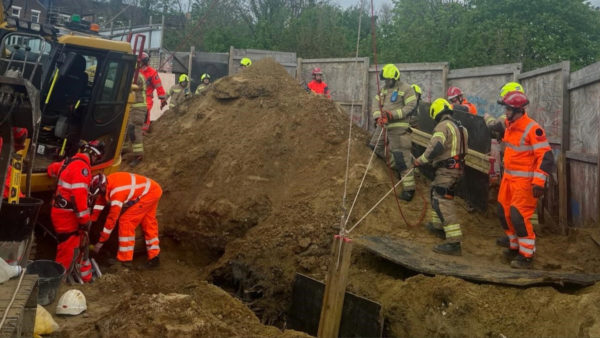
Suicide bidding has made an unwelcome return to the industry. Clients, unfortunately, fail to understand the impact of taking a suicide bid before it is too late.
The recent turmoil in the markets for steel and other construction commodities just adds to the risks clients are taking by signing fixed-priced contracts.
Instead of shifting risk, the client ends up taking all the risk when the contractor fails. It is a real lose/lose situation, with the client ending up paying considerably more in the end.
Our own CIOB survey on procurement suggests that prices 10% outside the norm need scrutiny. With the specifications of building being so heavily prescribed at the outset, material costs are roughly the same for everyone. This therefore leaves firms competing on overheads and profit margin. And if profit and overhead recovery is sacrificed, then cash flow becomes negative. If the gamble on commodity prices is wrong, then cash flow is even more negative.
When I worked in manufacturing, clients tended to take commodities — usually metals — out of the pricing mix. The supplier was left to concentrate on manufacturing efficiency under productivity and price targets, where the risk was properly shared. Customers that wanted to use steel took the risk for steel prices and we took the risks associated with manufacturing.
It was some consolation at a recent All Party Parliamentary Group for Excellence in the Built Environment
to hear Francis Maude, the minister responsible for public procurement, advocate the use of value as a measure, not lowest price.
However, we hear this every time government takes a look at procurement, but I doubt whether the public sector can ever change.
The public sector is heavily fragmented with a range of professionals, semi-professionals and amateurs involved in procurement, all looking over their shoulder at the Public Accounts Committee.
The challenges for the public sector procurer get greater as the speed of technological development increases, making their projects out-dated the minute the ink is dry on the contract. PFI was supposed to be a solution, but again, in trying to be over-prescriptive and “protect” their interests, clients lost flexibility and damaged their interests. In the end, no one feels very satisfied.
Comments
Comments are closed.









Many thanks for this Chris; it is right that the change has to happen with the tender process and that it is clients who are making a rod for their own back.
Having said this there are examples where educated clients are gaining form the advantages of getting best value rather than lowest price. The Open University three years ago saw the opportunity to set up a framework and the projects (public sector) have all delivered on time, within budget, to a high quality and with added value to the final result.
This did not happen by chance – the process was carefully managed and can be emulated.
I would ask anyone interested to view the outline document on the web http://www.open.ac.uk/estates/framework/page1.html to find out more. It can be done and within the OJEU rules.
Mike Rhodes – Coaction Management Ltd
Chris,
Much of what you say is true, but it won’t change a thing.
Contracts awards are based on recommendations initially produced by junior staff with many levels of management above them. Who is going to say to their boss “we decided to spend more”?
Inevitably what they actually do is say “lets award to the lowest – then we have that margin to the second bid in hand in case we need it”
I spoke to a very senior procurement man for a client a few months ago, and he acknowledged that this is what happens and that as a result he fully expected some of his contractors to go bust. However, in his view that was ok as he had “made allowance for that”.
To make matters worse, he was moving towards NEC contracts and Activity Schedule in an effort to remove interim payments. I suppose he felt that gave him some extra protection!
Interesting to note this under-cost bidding is only starting in the UK now, we unfortunately have been dealing with this issue in Ireland (South), for the past two years. Clients and sub-contractors have learned to their cost of the consequences. Government agencies have said the same “bids will be assessed on value” and introduced a weighting system for assessment, however it is always the lowest bid that is accepted. Open tendering is not the answer for inclusion of SMEs, it has been introduced here and has only lead to totally unrealistic bids being achieved for projects.
Interesting points Chris. We are all aware that over the years the public sector does not learn the commercial lessons. It seems to me with the technology we have today that public sector buyers could strike up deals directly with manufacturers directly to reduce or even eliminate price risk. But public sector procedure is far too slow to react to the market. Let us see how much overspent the current packages that make up the Olympic stadia ends up. For sure they will not come in under any pre-set budget. A missed opportunity. I am currently sitting in the middle of a massive public sector project – it will be late by up to 30% of the contract time scale – which was unrealistic from the start. Someone wanted the project in an unrealistic time frame – then entered into tender process having set the Liquidated Damages at 50k per day- only suicide bidders applied !!! Quality is suffering as a result. We have said this before ‘there is no such thing as a cheap job’ !! We live and learn over and over :-))